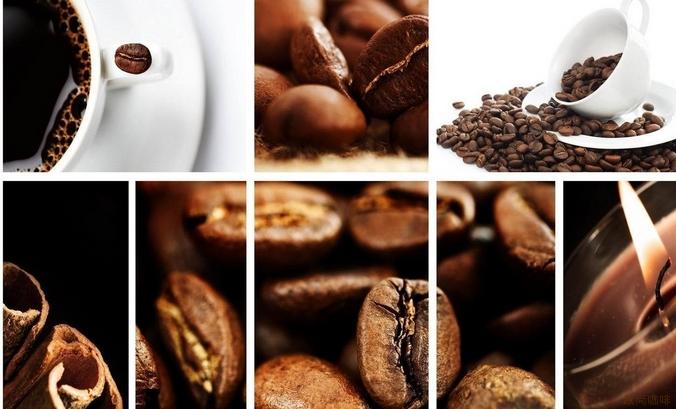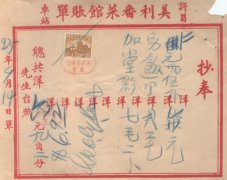The way to Coffee the experience of drinking coffee is wonderful.

Looking back on my experience of drinking coffee for the rest of my life, I can also confirm the old saying that "there is a heaven outside the sky, there is someone else". In those days, when I stayed up late in high school to study (extracurricular books), I just made a cup of instant coffee, a lot of cream and a lot of sugar. I already felt very happy.
At that time, if you want to pay attention to it, at most it is the priority of one brand of instant coffee and another brand. Finally went to college, a little more income as a writer, buy a lark brand electric espresso machine, drink well-packaged coffee powder, is even more magnificent. Every night, students in the dormitory smell incense and come, everyone has a cup, smoking while drinking, chatting all night, deeply feel that this is the happiness of youth. After graduation, I tried a convenient and fast electric espresso machine, a heavy metal mocha coffee maker and a specially made long-handle Turkish coffee maker. At the same time, I saved sugar and milk and grinded my own beans by hand. All I needed was a scholar to stir-fry coffee. I thought I had read so much about the world, so I went back to nature and used a French filter glass kettle (FrenchPress) every day; that's enough, that's good enough.
Until I got into a corner shop in Japan. The waiter of the shop, the owner himself, came over with a serious face and warned: "We have only coffee, no other drinks, no cakes, only cookies with coffee." Is that all right? " At this time, I found that although there were two or three tables of guests in the shop, no one spoke, almost as quiet as a prayer, and devoted himself to a small white cup in front of him. Unlike other Japanese cafes, where smoking is banned, and unlike all the coffee shops we know, no one talks and laughs freely, and the scene is like a church. It would be rude to go out again, and I couldn't keep my face up, so I made a hard head and ordered an order. With a straight face, the waiter and boss walked back to the bar, hung up his apron, turned into an unsmiling coffee master, and began to boil water and grind beans. I'm sorry, I forgot to mention that he had to measure the beans before grinding them. Using a small scale and thinking carefully, just measuring the proper amount of beans is like spending the whole afternoon. Finally, the water boiled, the master prepared to cook, the method is the traditional manual flushing, with velvet dripping. The procedures are complicated, such as the coffee powder poured into the filter cloth, using a small spoon to press a small hole in the middle, in order to make the coffee powder absorb hot water more efficiently. However, the word "efficiency" can never describe this ceremonial procedure, because this method of blending is not simple, we cannot just inject water once, but wait for the coffee powder that is full of water to swell up in the cloth net and steam for more than 30 seconds. When the powder ball sags in the center, it will only be injected with water for the second or third time. At the same time, the boss, who dared not even take a breath, danced to pour water and rotate his body all the way, injecting water into the coffee powder in a circle in order to make the coffee powder fully absorb hot water, and the whole body followed. It's because if you rely on your wrist alone, the water will be unstable. In addition, pay attention to the height of the elbow and the distance between the kettle and the strainer.
About half an hour later, my coffee came. I know that this is a new trend in recent years. It is said that it is the supreme way to appreciate coffee. From the United States to Hong Kong, people have taken this ultimate coffee path. But I don't know if every place will turn coffee drinking into such a sacred and solemn ritual like Japan. I almost forgot how delicious that cup of coffee was. When I walked out of the shop, I sweated on my forehead, as if I had gone through an exam and felt my breath restored when I was caught in the evening breeze from the outside.
The Japanese always tend to turn things into sacred rituals, such as the tea ceremony. As for the tea ceremony, everyone says that it is not the taste of tea that matters, but it revolves around its procedures and mentality. In contrast, although hand-brewed coffee has also developed into something almost ceremonial in Japan, from the mixer to the customer, everyone is devout and strict, but the whole process is still based on the taste of the last cup of coffee; it seems that all the solemnity before is for the most delicate to slight color change in the taste.
Then again, the most classical way of drinking coffee is really a ritual. Coffee origin Ethiopia treats coffee neatly and completely, which is a kind of sacrifice that even the Japanese can't match. First of all, they will stir-fry raw beans in front of you. Yes, they really pour the ripe red raw beans into an iron plate in front of the guests and roast them gently with charcoal fire. This is the pre-emptive skill of Ethiopian coffee, which can be seen in Ethiopian restaurants in some big cities without having to go to Africa in person. You can imagine how perfect your understanding of the aroma of coffee will be from such a unique start, with the light smoke turning from light to thick, to the fire gradually radiating around. This cup of coffee is already self-intoxicating before it has a real entrance. The beans are roasted lightly, and the heat is the same as the current popular hand brewing method, paying attention to the release of flower and fruit aroma, retaining the original bean slightly sour and sweet nature. But the next step once again widens the distance between it and all other ways of drinking coffee, and that is grinding beans. Strictly speaking, this is not grinding beans, but pestling beans. Because they will pour the fried beans into a narrow, tall stone mortar and use a wooden pestle to beat coffee. The skill of such a primitive process is much more difficult than that of a machine mill or even a hand mill. The reason is that it is difficult to master the strength. If you hit hard, you can crush the beans into fine powder, and the coffee brewed later will be over-extracted and bitter.
The embarrassing thing is to brew this last link, which turns out to be some of the best part. Because Ethiopians really "brew" coffee, the ground coffee beans are thrown directly into the pot and boiled, although it is not boiled with unboiled water (they pour coffee powder into boiling water), but there is an open fire at the bottom of the pot, which makes people wonder if this is too much. Not only that, I don't understand why they pour the coffee out of the pot, then go back to the pot and cook it again and again, and over and over again, isn't it boiling all the coffee flavor? It is said that Ethiopians who know how to make coffee best are good at timing and can control the process in the shortest possible time. In my opinion, this should be the case, otherwise the previous efforts to stir-fry beans and pestles would have been wasted.
However, in this ancient ceremony, no one will only focus on the taste of coffee, people are more concerned about the atmosphere. We enjoy Ethiopian coffee in restaurants in the modern metropolis, although guests and hosts enjoy it, but according to them, there has been a lot of discount. In the original hometown of East Africa, the hostess drinks three times a day. They drink in the morning before they go to bed, when the guests come to visit, and even more when the family has a rest around the stove at night. The way of human communication already existed before coffee came out of Africa. It is an everlasting dragon gate. How can I imagine and describe a scene I have never seen before? It may be like Chaoshan in southern Fujian, where the elder sits under a big banyan tree with a paper fan shaking gently and a pot of kung fu tea ceremony sweeping the sand with many heroes in ancient and modern times.
Important Notice :
前街咖啡 FrontStreet Coffee has moved to new addredd:
FrontStreet Coffee Address: 315,Donghua East Road,GuangZhou
Tel:020 38364473
- Prev

Don't do this when drinking coffee at a friend's house.
Tasting coffee a cup of coffee in front of you, do not rush to drink, should be like tasting tea and wine, there should be a gradual process, first pleasing to the eye, and then smell the aroma, and then begin to enjoy, in order to achieve the purpose of relaxation, refreshing and enjoyment. Coffee cups are usually served in pocket cups. The ears of this cup are too small for fingers to pass through, but even large cups
- Next

The earliest western restaurant in China was called Fancai Restaurant
Chinese people begin to recognize western culture by observing westerners 'living habits. The Chinese found that Westerners drink soup first, then eat; eat first, then drink. They couldn't explain this abnormal Chinese living habit, and they finally concluded that the fundamental reason why Westerners and Chinese living habits are different is that Westerners believe that the earth is round and Chinese head to head.
Related
- How did the Salvadoran coffee industry develop in Central America?
- What exactly does the golden cup extraction of coffee mean?
- The Origin of Coffee flower
- [2023 Starbucks World Earth Day] there are more meaningful things besides free Starbucks coffee!
- What kind of coffee is there in Spain? 9 Flavors of Spanish Coffee
- Aromatic African coffee| Kenya's coffee culture and historical production area
- Liberica Coffee Bean knowledge: the characteristics of Liberian Coffee beans of the three original species of Coffee beans
- The origin and formula of Spanish latte introduces the taste characteristics of Bombon coffee in Valencia, Spain.
- How to adjust the solution of over-extracted coffee
- What is the tasting period of coffee beans? What is the period of coffee and beans? How should coffee wake up and raise beans?

